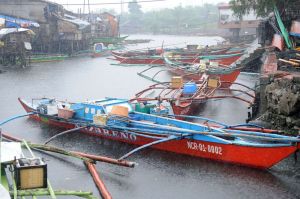You Want to Help – You’re Only Human!
A little over a year ago, my home was devastated by Superstorm Sandy. We sustained six feet of salt water intrusion in our basement along with 2 ½ feet in the first floor and garage. We were without electricity and heat for three weeks and had to bunk at my mother-in-law’s house during that time. Thousands of dollars later, we have rebuilt and gotten on with our lives, but the emotional scars persist.
Fast forward to today and view the impact of Typhoon Haiyan in the Philippines. The city of Tacloban has been virtually flattened. Infrastructure is not merely damaged, it is destroyed. At this point, there are no dependable estimates of the number of dead; 10,000 is the one I see most bandied about. Regardless, to quote Juanita Experas, a 63-year-old resident of a village near Tacloban: “There’s no food coming, but that is not as big of a problem as dealing with the dead. There are dead bodies everywhere, and it is making us sick.”

Not to downplay last year’s local destruction, but Haiyan makes Sandy seem like an inconvenient drizzle, light breeze and choppy seas.
One can only count one’s blessings. Maybe it is the feeling of “there but for the grace of God go I,” or maybe it is just a deep seated desire on the part of human beings to reach out to those in distress through no fault of their own. We genuinely feel for these people, and our empathy is only strengthened by the suffering we have endured. We see past the racial, religious, social and political differences that divide us and want to reach out and help. It is a basic and noble human inclination.
However, our “basic and noble inclinations” can go astray. Assisting people one on one is relatively easy, but getting mass aid to tens of thousands who are homeless, foodless, health care-less and otherwise in a pretty bad way is another story. Criticisms and accusations about what has been done and what should be done are mounting. 22 nations including the United States have rightly pledged support and are steaming warships and supplies to the Philippines as this blog is written. But, without proper safeguards, much of the aid may end up in the wrong hands, and assistance to the powerless and needy may become controlled by the powerful and greedy. And this storm, one of the most violent and destructive of all time, presents unique challenges. In past storms, relief agencies and governments would look to infrastructure that was intact, or at least serviceable, to use in providing assistance to the afflicted. In this storm, there is little infrastructure left! What may have taken weeks or months in other areas to restore power and rebuild roads and buildings will take years to accomplish in the Philippines. This is deadly serious and will test the long term resolve of their government and citizens as well as outsiders to make it right again, if that is actually possible.
Nevertheless, the charitable impulse is stirred when disaster strikes. Before you reach for your checkbook, I urge you to research the organizations to whom you decide to send your dollars. You want to help; find an organization that has the resources, experience and systems to actually put those dollars to work or get those in-kind donations on the ground and into the hands of the neediest. For assistance in identifying these organizations, check out Robert Mackey’s blog, “The Lede”, in the New York Times (although heed the author’s disclaimer about not certifying the charities). Another interesting website to peruse is the Center for Disaster Philanthropy. To make sure that the bulk of your donation is used to help victims, research the organizations beforehand to see how efficient they are with their assets and operations (www.charitynavigator.org). Peel the onion back a bit further to see how much money will actually go to the problem. Well-meaning organizations, often religious based, may set up relief funds within their existing organizations to channel money to NGO’s on the ground that are actually providing services. Unfortunately, this adds an additional layer of administrative expense… and is it truly necessary? It may be better to give directly to NGO’s involved in providing services. And, finally, forgive my seeming crassness, but in order to preserve your income tax deduction, make sure you contribute to a United States charity that is providing disaster relief rather than a foreign organization – contributions to foreign groups are generally not deductible! You can check out organizations that are eligible to receive tax deductible contributions on the IRS website. To prove my point, in the NYT blog referenced above, the Philippine Red Cross is cited as an organization that is “accepting donations and coordinating disaster relief.” No doubt it is, and no doubt that it is a reputable member of the Red Cross network. However, I don’t believe it is a U.S. based charity as I was unable to find it on the IRS website, www.guidestar.org, or www.charitynavigator.org. In this case, it would probably be better to give to the American Red Cross and direct the contribution to Philippine disaster relief in order to save your tax deduction.
This Thanksgiving (“Thanksgivukkah?”) may we be mindful of our brothers and sisters in all areas of the world impacted by natural disaster, especially right now the Philippines, and give up a little bit of our good fortune to help them regain their lives and dignity. I’ve always believed in “paying it forward” – post-Sandy, I believe in paying it back, too.


